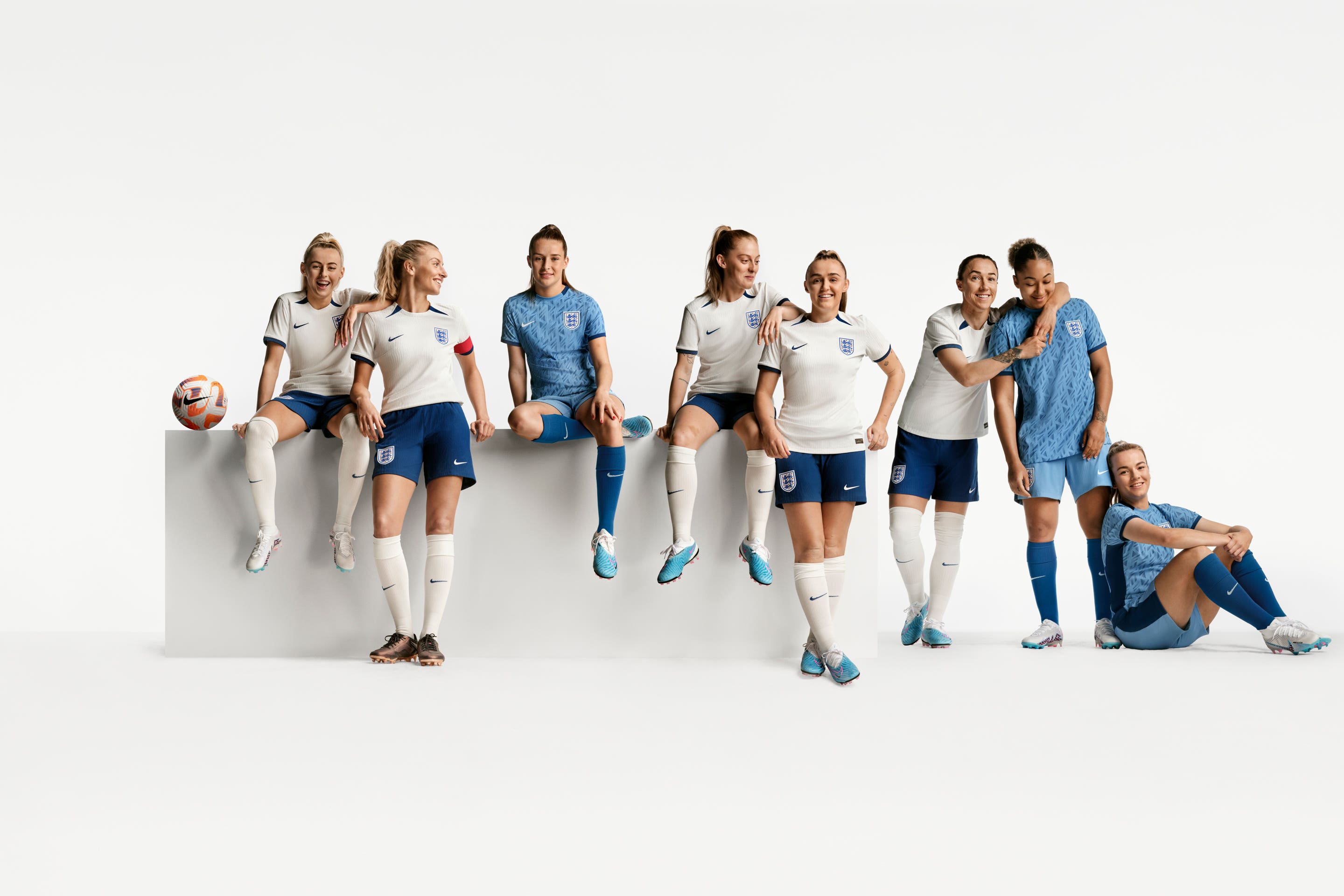How the period conversation is gaining momentum in football
The Lionesses new period-friendly kit could be the gateway to better accessibility for women in sport. By Prudence Wade.

Your support helps us to tell the story
From reproductive rights to climate change to Big Tech, The Independent is on the ground when the story is developing. Whether it's investigating the financials of Elon Musk's pro-Trump PAC or producing our latest documentary, 'The A Word', which shines a light on the American women fighting for reproductive rights, we know how important it is to parse out the facts from the messaging.
At such a critical moment in US history, we need reporters on the ground. Your donation allows us to keep sending journalists to speak to both sides of the story.
The Independent is trusted by Americans across the entire political spectrum. And unlike many other quality news outlets, we choose not to lock Americans out of our reporting and analysis with paywalls. We believe quality journalism should be available to everyone, paid for by those who can afford it.
Your support makes all the difference.England’s kit for the upcoming football Women’s World Cup will feature a major change to make it more period-friendly.
After players raised concerns over wearing white while on their period, the new Nike kit will feature blue shorts – replacing the all-white strip the team played in to win the European Championship last summer.
Prominent Lionesses have spoken out about the impracticalities of white kit.
England winger Beth Mead said: “It’s very nice to have an all-white kit, but sometimes it’s not practical when it’s the time of the month. We’ve discussed it as a team and we’ve fed that back to (kit suppliers) Nike.”
Nike unveiled a number of new kits for the Women’s World Cup in Australia and New Zealand – kicking off on July 20 – saying the outfits “debut a new fit and material innovation mapped to a woman’s specific movements”.
The shorts now have an inbuilt “ultrathin, absorbent liner that helps protect against period leaks”.
Jordana Katcher, VP of women’s global sport apparel at Nike, said: “Professional footballers play two 45-minute halves without breaks or time-outs. Many told us they can spend several minutes on-pitch concerned that they may experience leakage from their period. When we showed them this innovation, they told us how grateful they were to have this short to help provide confidence when they can’t leave the pitch.”
The move could help England’s footballers play to their full potential, Dr Jackie Day-Garner, deputy head of the school of sport and health sciences at the University of Central Lancashire (UCLan), told PA news agency.
“It will allow elite sportswomen to fully focus when competing at the highest level, instead of feeling self-conscious, which they might do if playing in a white kit,” she said.
Periods aren’t just an issue at the top level however, and can be a barrier to getting all women and girls into sport.
According to a study done by period care brand Joii, 45% of people with periods admitted they were unable to exercise because of menstrual discomfort, and 31% had missed a sporting event because of menstruation.
Over half (55%) made up an excuse for missing out, and 26% said leaking was the main reason for cancelling plans, with one in five saying they felt self-conscious in their clothes.
The right kind of kit is one thing that could help combat this.
“We welcome Nike moving away from white shorts to blue,” Bhavna Malkani, co-founder of inclusive football collective She’s Got Skills, told PA news agency.
“Although we have a long way to go, this move helps football to be more inclusive. Players often play a full 90 minutes, with only a 20-minute break. Imagine being on the pitch, with millions of fans watching and a fear that they may experience leakage whilst on their period. Who wants to wear white whilst being on their period? Nobody!”
Stephanie Hilborne OBE, CEO of Women in Sport, said that while “we’ll need to do a lot more to shift deep-rooted stereotypes” to get more women and girls into sport, this change “sends out the signal that society cares about how women and girls are feeling – not just how they’re looking”.
Hilborne told PA news agency: “The Lionesses showed last year what sport is really about, which is about joy and freedom – and it’s impossible to feel joy and freedom if you’re anxious about having a period and showing a leak in your shorts.
“We care about girls and women having the chance to have that joy and that experience of freedom. We think it has profoundly important impacts on our mental health throughout our lives, as well as our physical health” – and having impractical clothes creates “an extra barrier to joy”, she added.
According to Day-Garner, periods can have both mental and physical impacts on women and girls in sport.
“These span from being self-conscious about leaking and feelings of embarrassment that audiences will notice, to feeling uncomfortable getting changed in open changing rooms and showering in communal showers,” she said.
“Physically, performance levels can also be affected. Menstruation can create tiredness and cause female athletes to experience cramping and pain. Many young females avoid participating in PE lessons when they are on their period, so it is an issue that impacts all women in sport, from grassroots to elite clubs.
“Taking these needs seriously within the sporting world will open up the playing field for equal accessibility for women.”
Hilborne also said the news will help open up conversations around periods, adding: “It’s such a normal thing to have a period, and yet historically, talking about periods has been so taboo.”